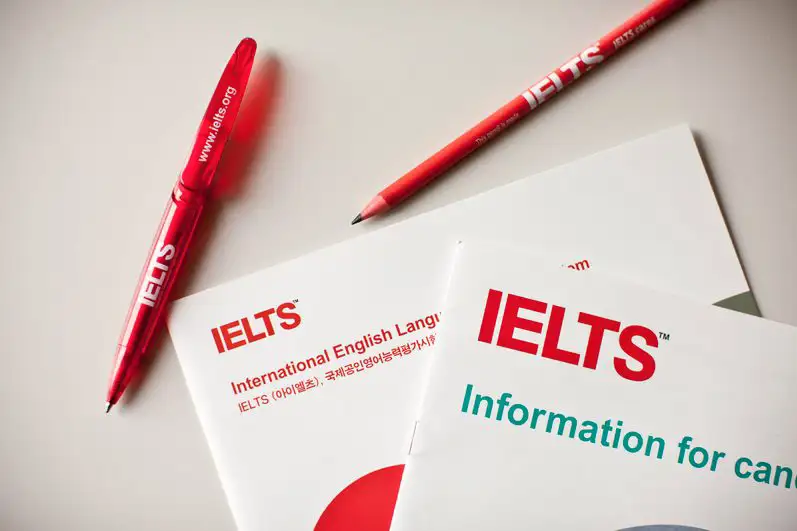IELTS and TOEFL: what is the difference?
If one of your plans is to study abroad in the UK, USA, Canada, or in any English-speaking country, you are probably already familiar with the IELTS and TOEFL exams. Despite the fact that both of these exams assess your level of English proficiency, assessing your reading, writing, speaking, and listening skills, these two tests differ in format, assessment system, and other parameters.
In this article we will look at the differences between these two types of English exams. In addition, I will also give you tips on choosing the exam that is right for you. With our IELTS plan in QQEnglish, we guide you from start to finish so that you know the best methods and methods of preparation.
In general, IELTS and TOEFL are simple English language proficiency exams that assess your level. In addition, these tests also determine your ability to understand the educational material that is offered at universities in English-speaking countries.
The IELTS and TOEFL exams are two of the most widely recognized English proficiency exams in the world. Despite their popularity, these tests differ in structure, methodology, and evaluation criteria. This means that you need to understand the difference between them before choosing the exam for which you are going to prepare and, eventually, take.
Table of Contents

What is the IELTS exam?
IELTS stands for the International English Language Testing System. This exam is conducted in two formats: Academic and General. Academic IELTS is the type of test you should take if you plan to pursue higher education abroad, meaning you aim to obtain a master’s or a Ph.D. degree in an English-speaking country. On the other hand, General IELTS assesses your social and workplace English language proficiency. In this article, we will focus on Academic IELTS.
Although the English language has many variations, IELTS employs British English. This type of test consists of four sections that assess the four macro language skills: reading, listening, writing, and speaking. Overall, each candidate has only two hours and 45 minutes to complete the test, including the time to transition between sections.
You may have heard of other English language proficiency exams, but only a very few of them are accepted by thousands of educational institutions in more than 140 countries, and IELTS is one of them. After taking the test, each student can choose up to five organizations to which copies of their IELTS results will be sent for free.

What is the TOEFL exam?
As mentioned earlier, IELTS and TOEFL are among the most popular English language exams taken abroad. We have already talked about IELTS, but not yet about TOEFL.
TOEFL stands for English as a Foreign Language test. This is an English language proficiency exam developed by the American company ETS. Like IELTS, this exam measures a person’s proficiency in American English in reading, speaking, writing, and listening. TOEFL scores are mandatory for more than 900 universities and other educational institutions in more than 130 countries.
If the IELTS exam has two formats, then TOELF, on the contrary, also has two methods of passing this test. The candidate can take it in the form of a paper test (TOEFL PBT) or an Internet test (TOEFL IBT). Interestingly, TOEFL IBT, however, is more popular. The only thing you need to do is to register and pass the TOEFL IBT in specially designated centers in almost all countries. The test taker can pass the exam in just four hours. This test is accepted in Australia and the UK, although American educational institutions prefer this exam to the IELTS test.
IELTS and TOEFL: comparison
For the United Kingdom, only IELTS UKVI is accepted, which is also used to confirm your visa to the UK and immigration application. However, for Canada and the USA, either TOEFL or IELTS is suitable. Students looking to take the test can find local centers that offer these tests. To find a testing location for IELTS, you can visit the IELTS website. They offer TOEFL testing over 50 times a year, and you can find testing locations here. The price for both tests is the same, around $200-300 USD depending on where you take the test.
Both tests consist of four sections that assess the most important aspects of the language: speaking, listening, writing, and reading. However, TOEFL is entirely multiple-choice, while IELTS consists of short answers and essay questions.
TOEFL is available as a paper-based test, but it is more popular as an internet-based test. Since 2016, IELTS has been available as a computer-based test in addition to the paper-based test. The online TOEFL test can take up to four hours, while IELTS lasts two hours and 45 minutes. However, taking IELTS can take one day, as the speaking test with an instructor is conducted separately from the other sections.
SPEAKING
For comparison, the conversational test in IELTS and TOEFL is completely different. Simply because the other is held face-to-face while the other is online.
If you think it’s more convenient for you to talk to someone face-to-face rather than through a microphone, then IELTS is best for you. During the exam, only you and the examiner will be in the room, and the test will take place as if you two are having a normal conversation. When you give your answer, the examiner will record you on tape and ask you some general questions. It takes a minimum of 11 minutes and a maximum of 14 minutes to pass the IELTS conversational test. The speaking test will consist of 3 parts. Questions may concern your home, family, studies, etc. In part 2, you will be shown a card with the specified topic, and you will have about two minutes to prepare, after which the examiner will discuss this topic with you.
Meanwhile, the TOEFL conversational test consists of six sections and is designed for 20 minutes. In two of the six sections, you will be asked about your opinion on everyday topics – this is an independent conversational test. The remaining four sections will be devoted to integrated conversational speech. With integrated speaking, you will need to listen to or read something, and then formulate a reaction to the recording or passage. For each section, you will be given some time to prepare before you give your answer to the microphone.
Testing Tip: Make sure you speak well and clearly express your opinion out loud.
LISTENING
Для прохождения теста IELTS на аудирование каждый кандидат должен ответить на 10 вопросов во время воспроизведения аудиозаписи. Все эти вопросы касаются тем повседневной жизни, связанных с ситуациями в контексте образования и профессиональной подготовки. В этой части экзамена формат вопроса может включать заполнение пробела, завершение предложения и ответ “верно” или “ложно”. Кандидат должен завершить сдачу теста IELTS на аудирование всего за 40 минут. 30 минут отводится на собственно экзамен, а остальные 10 – на занесение ответа в официальный бланк ответов.
Для сравнения, разговорный тест TOEFL занимает час. В разделе прослушивания TOEFL каждый кандидат должен прослушать от четырех до шести записей, а затем ответить на вопросы, основанные на том, что он/она услышал. Эти вопросы покажут способность кандидата понимать контент, которым он делится. Кроме того, он также должен продемонстрировать свою способность понимать эмоции и мотивации говорящего. В этой части теста TOEFL на аудирование вы услышите записи двух типов: записи разговоров и записи лекций.
Совет по тестированию: Найдите время и возьмите за привычку слушать разные акценты, чтобы не запутаться, поскольку на этом экзамене оценивается международный английский. И на обоих экзаменах не забывайте делать заметки во время прослушивания!
WRITING
The written test for both IELTS and TOEFL consists of two parts. In IELTS, the first part provides you with a chart or diagram. During the test, you will have 20 minutes to write a short essay of 150 words based on this information. In the second part of IELTS, you will be given an argument or point of view on which you need to write a response of at least 200-250 words within 40 minutes. However, the TOEFL written test requires you to read a short text on a specific topic and then listen to a two-minute lecture on that topic. You will then need to write a response of 300 to 350 words to a question related to this theme. The second part requires you to write another short essay.
Testing tip: Listen to podcasts and spend more time reading articles, then practice summarizing what you heard or read.
READING
Both the reading sections in IELTS and TOEIC are academically oriented. You will encounter lengthy passages followed by questions to assess how well you comprehend the excerpts. In IELTS, this section comprises 40 questions divided into three parts with various question styles. The exam includes providing short answers and completing gap-fill questions covering different aspects. Some common themes may involve familiarizing yourself with details and key topics, recognizing the author’s opinions and purposes, and so on.
In TOEFL, the questions will be multiple-choice and divided into three to five sections or “passages.” It requires you to read passages before answering 12-14 questions. The question set may include tasks like identifying words (vocabulary test), determining the main idea (comprehension test), and so on. Regarding timing, both IELTS and TOEFL are the same, as you will have 20 minutes for each part.
Testing tip: Learn to enjoy reading fiction and assess your understanding by asking questions about it.
Comparison of IELTS and TOEIC test results
IELTS Оценивание
If we talk about the test results, are IELTS and TOEFL slightly different?
For comparison, IELTS is assessed solely by humans, while TOEFL’s scoring involves both human and machine evaluation. A candidate taking the IELTS test will receive separate scores for each section. This means that each skill test has a corresponding score ranging from 1 to 9, and an overall total score (BS) for all sections. So, if you don’t perform well in one of the sections, it will affect your overall average score.
In simple terms, the IELTS score helps you easily determine your English language proficiency level; in other words, a non-user’s score is 1, while an expert’s score is 9. By the way, the average score a candidate needs to achieve to be admitted to an English-speaking university varies depending on their nationality and where they plan to study. For example, Filipinos planning to study in Australia or Canada may need to score at least 7 or 7.5 on the average band score to be accepted into a university.
TOEFL Score
Compared to IELTS, TOEFL is assessed by both humans and an automated scoring system. One of the differences can also be the scoring structure: 1 point is assigned for each question, resulting in a total score out of 120. Additionally, a candidate will receive a score from 0 to 30 for each section. Along with your TOEFL scores, you will also receive a performance feedback report. This report provides you with the range of scores of typical test-takers, giving you a better idea of how you performed compared to the average.
You also need to be aware that you won’t receive your test results immediately after the exam for both IELTS and TOEFL. Candidates need to wait at least 10 days to receive their scores. After this, the testing center will send you the results by mail 13 days after your test date.
Which test is best for you?
As mentioned earlier, one of the main requirements that you must have is a very good score on the IELTS test. Now, if you plan to study in the UK, get a good score on IELTS UKVI. However, if you intend to study in Australia, Canada, or the USA, you have the opportunity to choose which exam suits you, provided that academic institutions in these countries accept both exams.
But the main question is: which country is best suited for you? The answer is simple. If you prefer multiple-choice questions and prefer to speak in a microphone, TOEFL is right for you. If it is more convenient for you to talk to a real person and you prefer different types of questions, then IELTS is better for you.
What should be considered when preparing for exams
1. Make it a habit to answer trial and practice tests.
Before taking the actual IELTS and TOEFL tests, it’s crucial to make answering practice and sample tests a routine. This will help you practice taking the exam and identify your strengths and weaknesses.
However, your choice of specific practice tests is very important. In some cases, not all practice IELTS or TOEFL tests are as comprehensive. This means that there are some practice tests created by individuals that may not closely simulate the real exam. It’s best to consider practice tests for IELTS and TOEFL created by the same organizations that design the actual tests. Additionally, you can find free supplemental materials created by reputable companies that faithfully recreate the real thing. Once you’ve found something, try to regularly take practice tests so that you can systematically assess whether your skills are improving or not.
How can you find excellent practice tests to assess your skills? One way is to search online for guides on finding good IELTS and TOEFL sample tests.
2. Make sure you have found the most effective and comprehensive preparation materials for the test.
Your baseline level not only provides you with a specific benchmark for your strengths and weaknesses but also indicates which sections of the IELTS and TOEFL exams are most challenging for you. You can think of these challenging areas as your target areas. These are the test components that you need to pay special attention to for additional study and improvement.
3. Make sure that you are ready to take the exam on the day of registration.
When taking the IELTS and TOEFL exams, it’s also crucial to choose the test date wisely. You should keep in mind that selecting the right test dates for IELTS and TOEFL is of paramount importance. Your test date determines how much time you have for exam preparation. Moreover, the test date you choose should allow you to receive your official score report before the application deadlines. Most importantly, selecting the best exam date is a significant factor to consider. So, make sure you register for a day when you will be fully prepared.
If you’re still unsure which test to take, our team of IELTS experts at QQEnglish can help you make the right choice based on your progress in each section of the test.

Studying IELTS and TOEFL in the Philippines
In recent years, the number of ESL students has been growing due to its efficiency and affordability.
With the advent of ESL schools throughout the Philippines, studying IELTS is no longer particularly difficult. Now you can study it online with the most qualified English language specialists. IELTS and TOEFL exams may seem difficult, but with our effective and at the same time affordable packages, you will surely get the best value for money.
For more information about our IELTS and TOEFL courses, follow us on our website at https://qqeng.net



